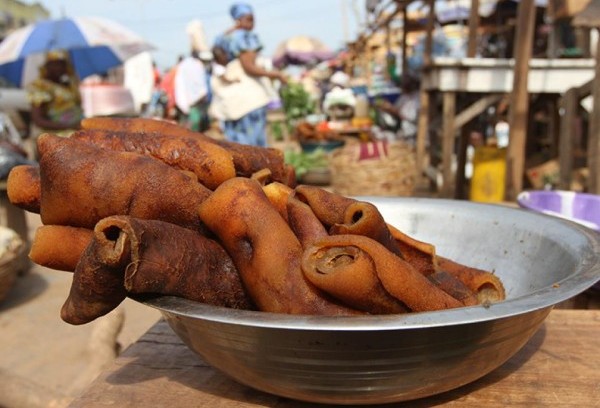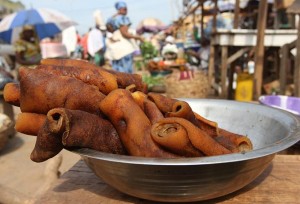The news that has been on the lips of most Nigerians of recent is that ponmo, the edible hide substitute for meat, could be banned. Most Nigerians have strongly kicked against the ban but may not understand the arguments behind it.
The arguments:
The whole talk on it started with the consideration by the Lagos state government to encourage the leather industry by banning the processing of the skin of animals slaughtered to ponmo. In addition, it was also argued by Nigerian Institute of Leather Science and Technology (NILEST) that consumption of the meat substitute, ponmo does not add any nutritional value to human health. The ban may also have been propelled by Growth and Employment in States (GEMS), a five-year programme in support for the meat and the leather industry which is jointly funded by the World Bank and the British Department for International Development, DFID.
Recent findings made by Solomon Agama, an agricultural economist and MD/CEO Farms to Market Synergies Limited, on the socio economic contribution of ponmo versus leather to Lagos State, have shown that ponmo contributes to the economy of the state more than leather. His report showed that apart from ponmo serving as a local delicacy, more people especially women and the poor are engaged in the ponmo value chain than the leather value chain in Lagos and if ponmo is banned and its resources is diverted to leather, many people in the ponmo value chain will be displaced.
Conclusion
Nigerians are strongly kicking against this ban. If thousands of Nigerian women and the poor ones are displaced from their jobs with this ban, are there provisions to put them to work in other related industries? And perchance Nigerians agree to give up ponmo so that the leather industry in Nigeria will be given an opportunity to grow, what are the odds that after five years of GEMS intervention, with our still developing maintenance culture, the leather industry will remain and keep adding to the economy?
Our manufacturing sector needs a total overhaul. The focus should not only be on the leather industry alone. We should not just jump into projects because international organizations and bodies recommends them but first determine whether such projects are projects that will indeed help our investments and add to our economy. In the meantime, Nigerians are still on the look out for their no nutrition delicacy.



